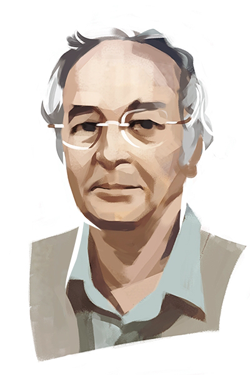President of the Society of Authors Philip Pullman and Chief Executive of Creative Commons Cathy Casserly debate the future of copyright
By Index on CensorshipPHILIP PULLMAN
Copyright is simple to understand, except when those who want to get rid of it start complicating the explanation.
If I write a book, the right to make money from it belongs to me, and I make an agreement with a publisher who will print it and distribute it, collect the money it sells for, and pass on a small proportion to me. Anyone who wants to read it either has to buy it, in which case I get that small proportion of the money it sells for, or borrow it from a library, in which case the librarian counts the number of times that title is borrowed, passes on the details to the Public Lending Right administrators, and I’m paid a small sum for each borrowing.
Quite a number of people make money in the course of these processes. The editor, the jacket designer, the publicist, the printer, the library assistant, the bookshop manager, the PLR administrator, and others, all earn a living on the back of the fact that I and my fellow authors have written books that people want to read. And so do I, and that’s as it should be: we all contribute to the process of bringing my book to the public. Our rewards vary, of course: if my book sells a lot of copies I might make more money in a year than the bookshop manager, whereas if it sells very few I’ll make a great deal less. But that’s the risk I take, and on the whole this system is fair, and most authors see the justice of it.
What happens when someone buys my book and lends it to a friend? Well, I don’t get a penny for that, of course. Nor do I get a penny when they decide they would rather get rid of the book and give it to Oxfam, who sells it second-hand. But those transactions are pretty few, and I can put up with the anguish of making no money from them by thinking that, after all, they increase the number of my readers, who might buy my next book themselves.
Now suppose that someone sees there’s money to be made from books, and decides to print and distribute my book themselves, without any agreement with me, and keep all the money they get from it. They’d be fairly stupid to do that, because this is where the law of copyright comes in. They’re not allowed to do it. It’s against the law. That’s why it very rarely happens now, although it used to happen a great deal before international copyright agreements came into existence. Charles Dickens, for example, made no money at all from the vast sale of his books in the United States, and he was justly angered about it.
More

No comments:
Post a Comment